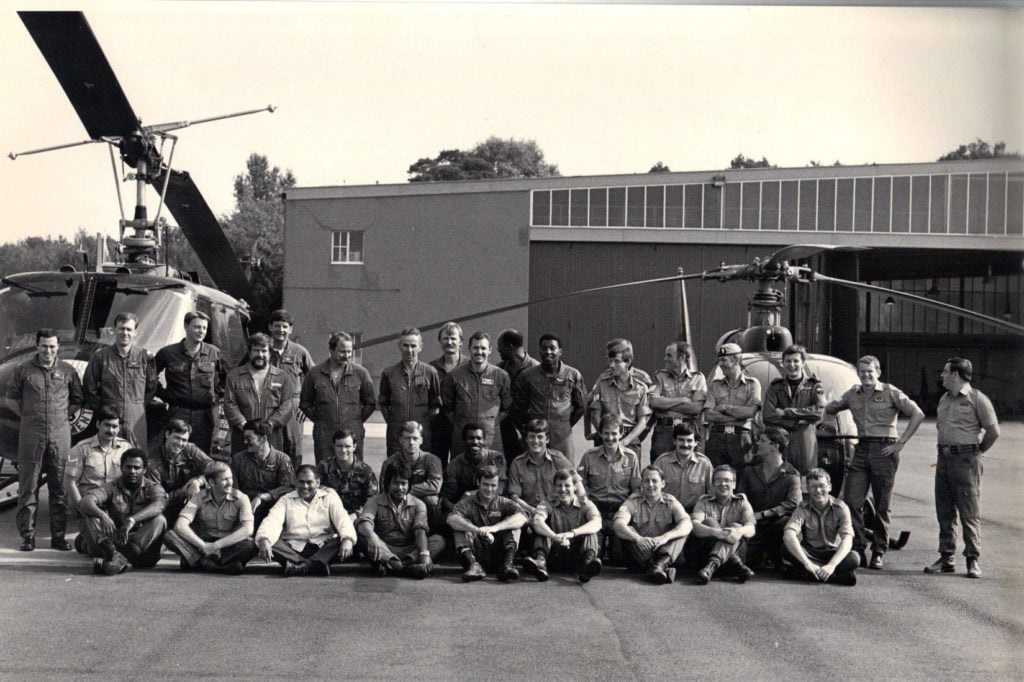
This is the sixth part in a series on the intersections of technical communication in the tech industry and the academy. Read the series introduction here.
As I have explained in my post on Georgia Tech’s CS Tech Comm Junior Design course sequence, most Computer Science and Computational Media majors at Georgia Tech take a sequence of classes that combine technical communication with a team-based project design and development experience. The setup of the course sequence means that Tech Comm instructors (from the Writing and Communication Program within the School of Literature, Media, and Communication, or LMC) co-teach with Computer Science instructors (from the Division of Computing Instruction).
As a former Tech Comm instructor, I’ve been fortunate in that I’ve had the chance to co-teach with a number of brilliant CS instructors. One of these co-instructors, Bob Waters, is retiring at the end of the Spring 2019 semester. As Bob has also been an integral part in the creation and evolution of the Junior Design course sequence (and has done much of the course sequence coordination on the CS side), I sat down with him to talk about his thoughts on and experiences with these courses. Amanda Girard, the current course sequence coordinator on the LMC side (and one of Bob’s current co-instructors) was kind enough to join us.
KellyAnn Fitzpatrick: How did you get into computer science?
Bob Waters: I started out as a freshman and I had a ROTC scholarship so I was going to go into the military when I graduated anyway, but I started out as an aeronautical engineer in the pre-engineering program. I was going to do two years at my hometown university and then transfer two years in to the big engineering university. I was sitting in physics class my second semester of my freshman year and the professor was writing some stuff on the board about how a bullet hits a spring and it compresses this much, and he goes “All of you who are going to be engineers are going to do this the rest of your life.” I changed my major the next day to computer science. I’d had a computer class on Fortran and I really enjoyed it, so I changed to computer science and never looked back.

KF: Why Georgia Tech?
BW: Another long story. So, I was about to retire from the military. It was March and I had applied to Georgia Tech to the Ph.D. program but hadn’t heard anything back. I’d been out of school a long time, so all my reference letters—I didn’t have any from professors—they were from a general officer and some other people who had written letters for me, so they weren’t really that interested. And my boss came down and said “Bob, we’ve got to give a talk to some Georgia Tech people.” And so I didn’t really want to go because I thought “Oh, man, all these professors are doing cutting edge research.”
Amanda Girard: That’s not nerve-wracking at all.
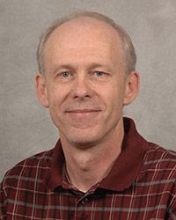
BW: So my boss said “Oh no, it’s for students.” And so I went out to Callaway Gardens, it was an Executive Round Table, if you’ve heard of that. They had me as the after dinner speaker to get up and talk. So the speech actually went pretty well. Out in the audience was a young woman who was a grad student software engineer and apparently she came back to Georgia Tech—when I made a joke about not getting accepted to Georgia Tech—and she came back and apparently she started kicking doors down in the College of Computing saying “You’ve got to let this guy in to the program.” I got a call from the M.S. coordinator. He said “I want you to come in and meet with me.” I got all dressed up in my dress uniform with all my ribbons and stuff and my gold braid and tried to look as impressive as possible. And he said “We’ll conditionally admit you for a semester to see if you can do the coursework, and if you can then we’ll accept you as a master’s student.” I said OK. So I went to the master’s program, and showed I could do the work, and then they took me right into the Ph.D. program. And then while I was in the Ph.D. program they needed somebody to teach a couple of the entry level classes, so they hired me as a part-time instructor also while I finished up my dissertation.
KF: We know that story.
AG: Yeah.
KF: And they paid you peanuts.
BW: Actually the young woman, she came back—it’s Annie Anton—she’s the (former) head of the School of Interactive Computing. But it’s either her fault, depending on how you look at it, or thanks to her that I got into Georgia Tech.
KF: So this talk that you gave is basically what got you into Georgia Tech.
BW: Well, it impressed her enough that she felt the urge to come here and kick doors down until they accepted me.
KF: This is the best tech comm success story ever.
AG: It really is.
KF: And we’re just learning that we should start every Junior Design class with this story.
BW: If my speech had been flat, I would probably be working in the industry right now. Or retiring from industry right now.
KF: Moving on…You played a major role in the creation and evolution of the Junior Design course sequence. What parts of that process or the courses themselves are you most proud of?
BW: I think the way it has currently morphed into a really, really, I think good course and a good experience for the students. Before it was really separated from tech comm. Having been in the military for twenty years I knew how important communication was, but the students were like “I’m a computer scientist. I don’t need to know how to write these papers. I don’t need to know how to give a speech. I just have to know how to write code.”
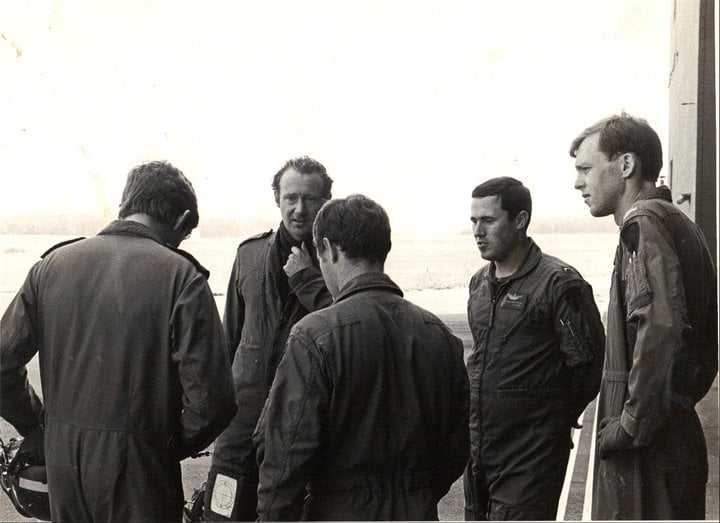
Bob (far right) at Gatow Airfield (Berlin) in the early 80s, planning a joint exercise with the British.
AG: They don’t know yet.
BW: Yeah, they don’t know what it’s really like. And so I think by having it integrated they started to really see the value of how important it is to be able to write and communicate not just with their teammates but with their customer and the people that are viewing their product. And I think the Expo has really added to this. By getting rid of that second semester assignment that was really the same as they did in the first semester and replacing it with something totally different. Because some day they’re going to have to go to trade shows and show the software from their company, and this is at least going to give them a little experience with that. And designing swag and that sort of stuff.
KF: I published a blog post on the Expo, by the way.
BW: Oh did you?
KF: I’ll send it to you, but it makes the same exact argument that you just made in regards to what our students might be expected to do someday. But going back to the Junior Design course sequence: you’ve also coordinated it with Fisayo (Omojokun) and with your LMC counterparts. What are some of the biggest challenges that you’ve had doing that coordination?
BW: When we first started, the writing people that I was working with got really excited about the two-semester course. When it first started, after the first couple of semesters, it turned into a two-semester writing course with a tiny bit of CS in it. We did the big redesign (in Summer 2016) and Hal (Lawrence) worked on that with me and Dan Forsyth and a bunch of the CS people. We would meet and we really hammered it out—because it was killing the writing instructors because of the amount of writing that they had to grade. We were doing two full tech reports the first semester plus a bunch of other stuff. Two full tech reports the second semester plus a bunch of other writing and blog posts and stuff that the students were doing. We cut all that down to a really feasible amount, the bare minimum of what really they needed to write to give them the experience they needed but still have enough time to do the project with the coding-intensive milestones like we do now in the second semester.
KF: Thank you for doing that before I got here.
AG: Right?
KF: We have benefited from these changes.
BW: Yeah, that was Hal and Liz Hutter. And that’s the only thing I don’t like about teaching with Brittain Fellows. I teach with somebody for a couple of semesters and I get really comfortable with them, and then it’s “Bye Bob, this is my last semester, I got a job somewhere.”
AG: But this semester you’re going to be the one that’s like “Bye, Amanda.”
KF: Amanda, you may be the first CS tech comm coordinator that Bob leaves behind. Everybody else leaves Bob first.
AG: It’s very motivational for me to get a job. Like if Bob’s leaving, I should get out, too. But do you think that the courses are sustainable this way? Do you think that they will continue this way at Georgia Tech?
BW: I think that as long as we can get the CS department to support it. I know that a lot of other universities, they say that they can’t have two instructors for the class.
AG: It is a lot of resources.
BW: Yeah, they say that they can’t sustain those resources. But I think that given the benefits that we get, I think they have bought into that this is worthwhile to commit the resources.
AG: The administration has bought into it?
BW: The CS administration has bought into it. And as long as Rebecca (Burnett) and Charles Isbell, at their level, are committed, then I think it is sustainable. Because the teaching load only counts as ½ a class for us. It’s not like they are losing us totally. If I were teaching the old 4911 I would teach the full three hour class but it would still take up one whole class slot. On the CS side, at least, the way they divide up the work, it doesn’t cost us a lot extra.
AG: And Brittain Fellows, because we are technically post-docs, it’s not like we get paid like regular lecturers or faculty.
KF: We definitely don’t get CS pay.
AG: And so we are inexpensive, if you will. But also with the rotating faculty in this way, I am sure there are CS professors that don’t want to teach this course for that reason. Does that add value to the course or take away from it? Because people are always looking at the course with fresh eyes. But at the same time, like you said, you get to know someone and teach with them well, and then they’re like “See you later.”
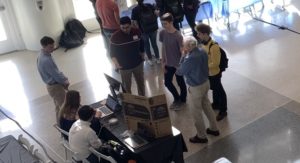
BW: On the CS side there are several instructors who never teach this class, but the people who like to teach it are the people with a software engineering background. So Suzy (Watson-Phillips) was a software engineer, me, Fisayo, Mark Moss. So we have enough software engineers still hanging around that we have enough people that really understand the importance of what the class is all about and why it is important for students to get this experience with a real customers. Whereas you get people on the theory side, they don’t really care much about this class.
KF: Aside from the sustainability or the administrative concerns that could pop up, in the next 5-10 years, what changes do you see happening in this class. Which of course you don’t have to incorporate because you get to go retire.
BW: A lot of classes are looking at the whole online thing and to see what we can substitute online for students not coming to campus. The fact that this is highly team-based and it requires a lot of collaboration between the teams and the customer, this would be one of those classes where it would be really difficult to move the whole thing online. But looking at certain modules, what modules could we pre-record or do presentations on, like the retrospective, the detailed design, and project management. What things can we put on video and not take up class time on and do outside of class. And use class time for those peer exercises where we really need everyone in the room together face to face. So I’d say some kind of hybrid online vs. attending a traditional classroom.
AG: Like a reverse curriculum, where most of the things they actually have to do are the assignments they would do online and then the class time the instructors would help them with their homework?
BW: Like how we do the first retrospective. So they would learn about the retrospective outside of class and then they would come in and we would be there to help them along with rough areas or anything that is confusing. Same thing with detailed design. We might not do any classroom instruction on the detailed design and they would just bring something to us and we would go over it like we did today.
AG: Yeah, that team was nervous.
KF: It’s a big report. Speaking of nerves, how does teaching at Georgia Tech (or in the DCI in particular) compare to flying helicopters?
BW: I’m not sure it does.
AG: Does it?
KF: Can they be compared?
BW: Exactly. I mean, there’s no risk of sudden death teaching students.
AG: It’s a big life change.
BW: I mean, as far as pre-flight activities you meticulously plan your flight, you calculate all the things that could possibly go long and what am I going to do to mitigate those things that go wrong, and so it’s the same thing teaching a class. You think about all the material, you plan out what you are going to do, what students might have problems with and how am I going to mitigate those problems in the class. But it’s hard. They’re so different it is hard for me to think of clever analogies.
AG: Well, the mind frame. You’re looking for problems and solutions all the time.
KF: And I have to say, instructors get stressed out sometimes, from grading and stuff like that, but you, Bob, never do, and I think it’s because it’s not like you are flying a helicopter into some kind of life-or-death situation.
BW: Yeah, the military is super high-stress. I got into an argument with a professor once about “Oh, well academia is just as stressful as industry” and I said “No, it’s not.” It’s stressful for them in a different way because I’m not tenure-track. So I know there’s a lot of stress about punching all the right buttons for tenure. That’s a lot of emotional and psychological stress. But it’s not the same kind of stress I had in the military.
AG: And it’s different. My dad’s a retired army colonel, and as soon as I got my Ph.D. he said “So you’re teaching graduate students now,” and I was like “No, the hierarchy in academia isn’t the same; when you finish something you don’t always move up in a certain way.” And again, what’s the comparison? There are different hierarchies, they work in different ways.
KF: Final question. You are retiring this spring, as we all know (and are sad about, and it is one of the reasons that I jumped ship for industry). Any retirement plans? And what will you miss most about teaching here?
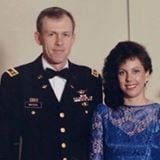
BW: Most of our plans are just travel. We want to travel while we are still young to actually enjoy it. We spent threeyears in Berlin, but that was in the 80s back during the cold war when the wall was still up. So we want to go back and see what it’s like with an open, united Germany, and do some traveling around. It’s going to be really different to go back. And I was in Korea in the 70s and now it is an industrial powerhouse, so I probably would not recognize anything if I went back there now. And my wife never got to visit me when I was in Korea because it was an unaccompanied assignment. So it would be fun to take her there.
KF: That sounds like a great trip.
BW: I think for what I will miss most, I’ll miss the students. When I was still on active duty, one of my commanders had actually taught at West Point, and he was talking to me about what I want to do when I left the military. I said, “I’ve always wanted to teach. I’m going to try to teach at a university.” And he said “Well the one good thing is that students will keep you young. Students will keep you on your toes to keep up with them and they will keep you up on all the current in things that are going on.” Sometimes there are technologies that I have never heard of until a student says “We are using X framework,” and then I have to go type it in and see what it is and how to use it.
KF: That is how I learned about React and AWS Lambda.
BW: But student, I’m really going to miss them. When I told a student that, they said “I thought you’d be glad to get rid of all these students whining and complaining.” But really that’s the thing I’m going to have to figure out how I’m going to replace: that keeping you young and keeping you active thing that students do.
AG: Well their energy is contagious. They’re excited about stuff and they’re seeing things with fresh eyes.
BW: They don’t let you get stuck in a rut too much.
Disclosure: Amazon is a RedMonk Client.
Note: a version of this article has also been published on TECHStyle.
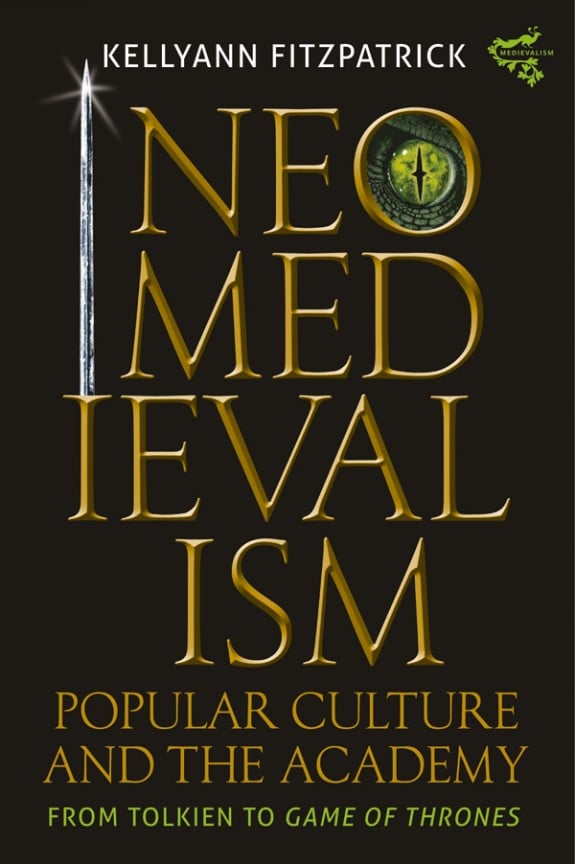
No Comments